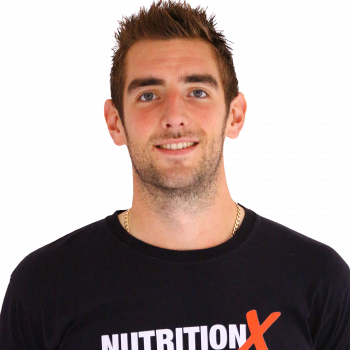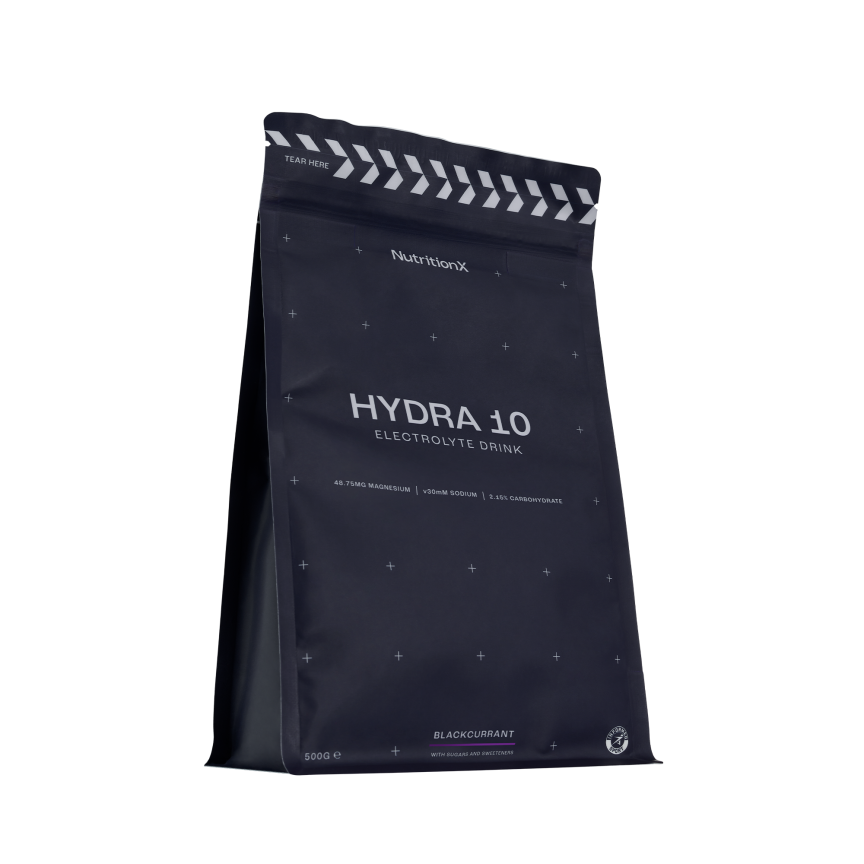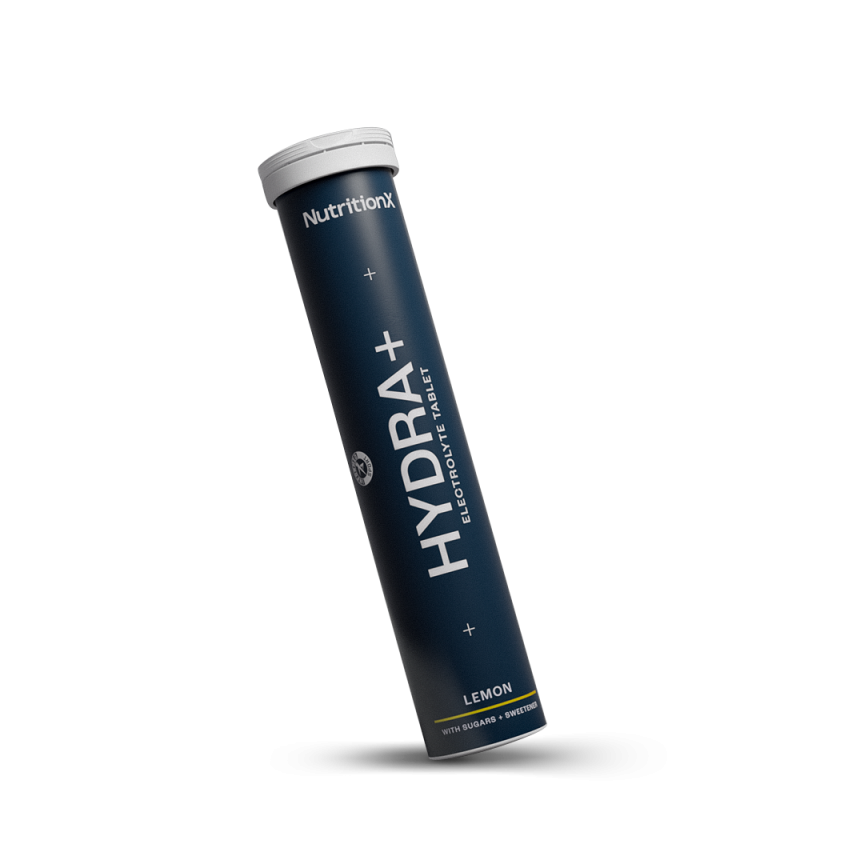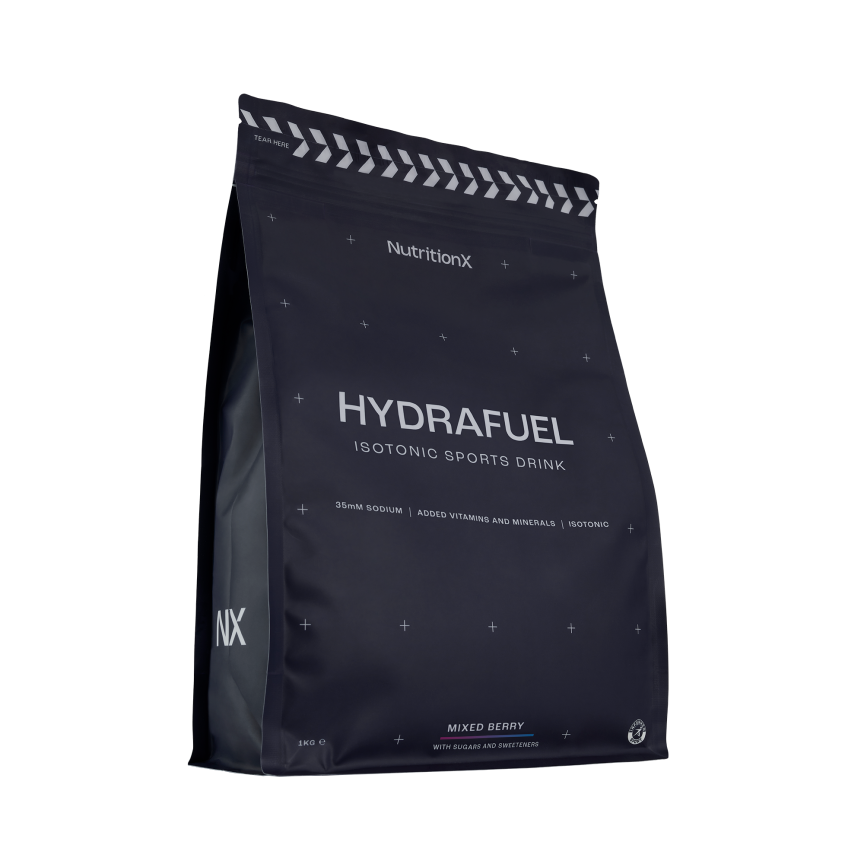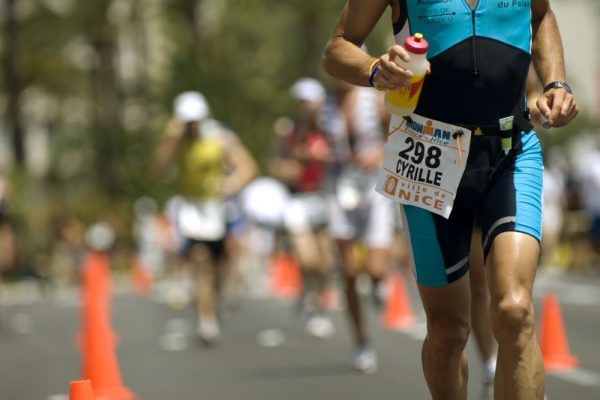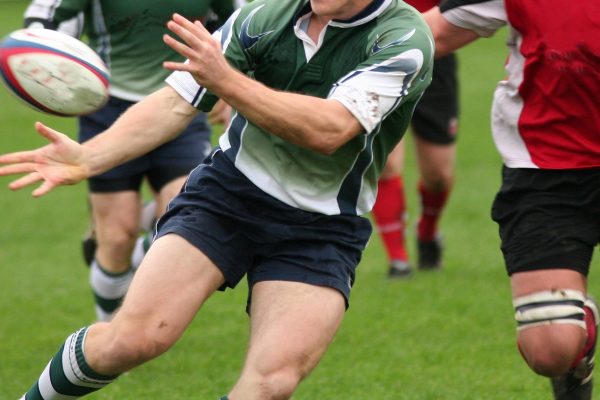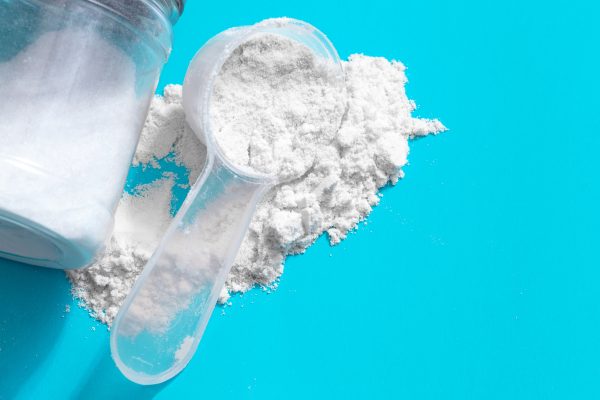An isotonic sports drink is a drink designed to help fuel and hydrate the body during intense exercise, containing carbohydrates at the same concentrations as those found within the human body. Together with sodium, isotonic sports drinks act as an effective solution to maintain energy levels and hydration during events lasting longer than 60 mins, i.e. rugby or football matches, or endurance events like a marathon.
What does an isotonic sports drink do?
Effectively, an isotonic sports drink helps to quickly replace key electrolytes and fluid lost through sweat when we exercise. In addition, the added carbohydrate can help athletes achieve an added energy ‘boost’ - important during endurance events, matches or long training sessions.
As you exercise, your sweat rate increases, which is essential to maintaining thermo regulation in the body. When we sweat, we don’t only lose body water but we also lose key electrolytes such as magnesium, sodium, and potassium – the main one lost being sodium. This loss in body fluids and electrolytes results in dehydration, which can have detrimental effects on athletic performance, with as little as a 1-2% loss in body weight being proven to affect our physical and/or performance. It is therefore crucial that athletes remain in a hydrated state at rest (having body fluids at their normal level) and before exercise, minimising dehydration to less than 1-2% during exercise and fully rehydrating after exercise. An ideal way to maintain hydration before, during and after exercise is to consume drinks high in electrolytes – including an isotonic sports drink.
Why do athletes need isotonic sports drinks?
During intense exercise, athletes need to maintain their energy levels to maximise performance. Consuming a carbohydrate-electrolyte drink with the same concentrations as those in the body means that these carbohydrates can be digested and used for energy more efficiently without causing any gut issues, which might be experienced with hypotonic (lower concentration) or hypertonic (higher concentration) drinks. Isotonic sports drinks also support hydration levels - important when sweating, and therefore a loss of body fluid, occurs.
Why is hydration important for athletes?
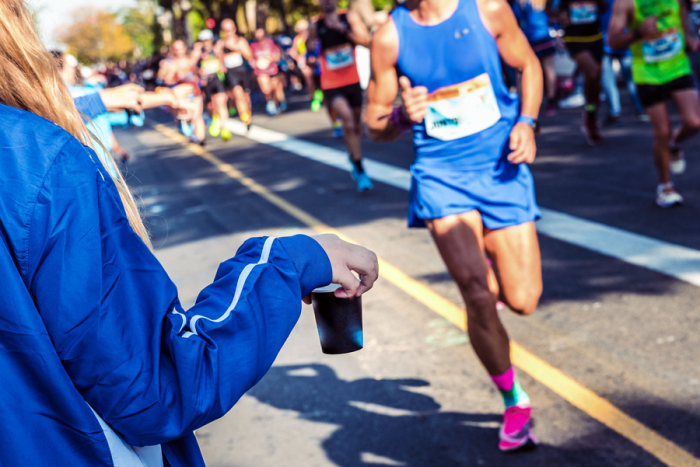
Sweat contains water and electrolytes, such as sodium, and if water and sodium are not replaced sufficiently, dehydration can occur. This means the body must work harder to maintain the same physical output. As a result, there is less water in the blood which makes it thicker, so the heart must pump harder and faster to transport oxygen to the working muscles. After a while, this cannot be maintained and fatigue takes over.
Athletes must consider consuming fluids during events greater than 60 minutes to prevent dehydration-induced fatigue. Dehydration of more than 2% body weight loss (i.e. 1.4kg in a 70kg athlete) is when performance starts to deteriorate. Athletes who train for multiple hours a day and at high intensities have additional fluid requirements to maintain performance, and should drink according to their individual sweat rates; which can range from 0.3-2.5L/hour, depending on environmental conditions.
Learn more about the importance of hydration in sport and the benefit of electrolytes.
What are the different types of sports drinks?
Sports drinks can be classed as hypotonic, hypertonic or isotonic. A hypotonic sports drink is a dilute solution that contains roughly less than 40g of carbohydrate per litre (i.e. less than a 4% carbohydrate solution). A hypertonic drink on the other hand is more concentrated and contains more than 80g of carbohydrate per litre (greater than an 8% carbohydrate solution). An isotonic sports drink like HydraFuel is a ‘typical’ sports drink that contains 40-80g of carbohydrate per litre (4-8% carbohydrate solution).
Sodium also plays an important role in sports drinks, including helping to retain fluids in the body rather than eliminating fluid through urine or sweat. Studies have suggested that >30mM sodium solutions are best for rehydration, helping to reduce excessive urination - the reason we've formulated our HydraFuel and Hydra+ hydration supplements with >30mM sodium.
Carbohydrate and isotonic sports drinks
Carbohydrate ingestion has been consistently proven to be beneficial for athletes competing in sports with high intensity efforts of longer durations than 60 minutes. Benefits in particular are seen in fuelling the repeated high intensity efforts as well as skill, decision making, cognitive function and reaction time - all of which are needed in sports activities such as netball, rugby and football. In terms of quantity, research suggests 30-60g per hour is an ideal amount of carbohydrate to consume during high intensity exercise, which is approximately 0.5-1L of a typical 6% carbohydrate solution.
When should I consume an isotonic sports drink?
Isotonic sports drinks are best consumed before and during high-intensity exercise lasting longer than 60 minutes, or during competition (i.e. at half time and during the second half in a football match). Consuming these carbohydrate and electrolyte-rich drinks will help to maintain energy levels and promote physical and cognitive performance, effectively helping you keep going for longer. They are also useful in the days before a long distance event, like an Ironman triathlon, to help make the carb-loading process easier. For rehydration purposes, aim to consume an isotonic drink - like HydraFuel- immediately after exercise for maximum benefits.
Are isotonic sports drinks good for you?
Isotonic sports drinks are not designed to improve health, but for competitive athletes who train hard for multiple hours a day as consuming them before and during exercise can help to maintain energy levels.
What are the benefits of isotonic sports drinks for athletes?
Isotonic sports drinks help athletes to maintain energy levels during training and matches, as they contain a combination of easily digestible carbohydrates and sodium; offering immediate energy and promoting hydration. Training or competing for longer than 60 minutes without consuming additional carbohydrates or sodium-containing drinks may leave the body fatigued as a result of depleted muscle glycogen stores and dehydration.
Check out our range of hydration sports supplements here.




